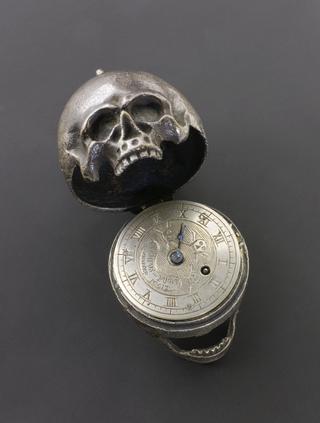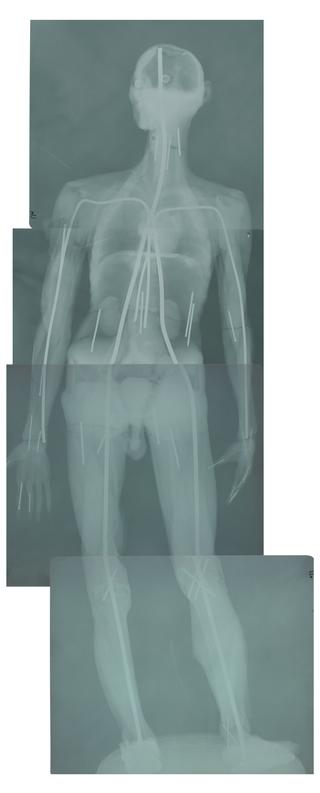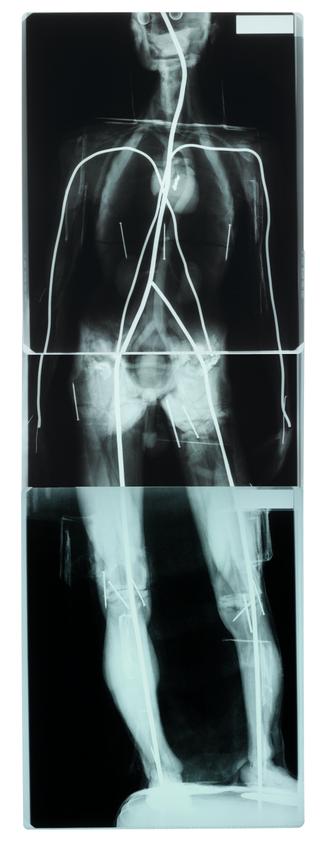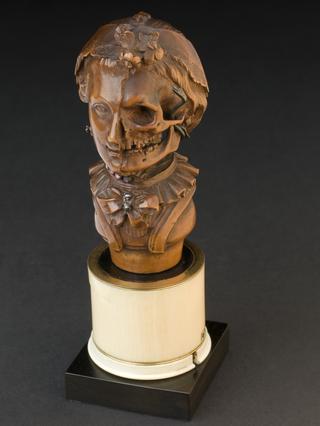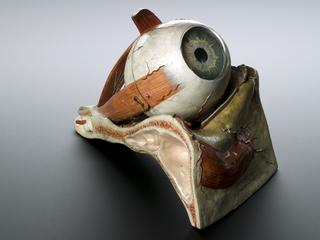
Human right femur, Tell Fara, Palestine, 100 BCE-200 CE
- Made:
- 100 BCE-200 CE in Tell Fara
Human femur, right, showing healed unreduced fracture, adult, from Tell Fara, Syria, reputedly Roman period, 100 BC-200 AD
The femur bone is the bone joining the hip and knee joints. This femur shows an unreduced bone fracture. This means that the bones were not correctly realigned, using a splint or by surgical means, and therefore did not heal correctly. These femurs are from the left leg and the right leg of a human, although it is not clear if they are a pair. The bones were excavated at Tell Fara, Palestine, by the British School of Archaeology in Egypt, 1928-1929. The bones were purchased by Henry Wellcome from University College London the following year.
Details
- Category:
- Anatomy & Pathology
- Collection:
- Sir Henry Wellcome's Museum Collection
- Object Number:
- A85944
- Materials:
- bone
- Measurements:
-
overall: 70 mm x 370 mm x 10 mm, 0.27 kg
- type:
- human remains and bone
- credit:
- Wellcome Trust
